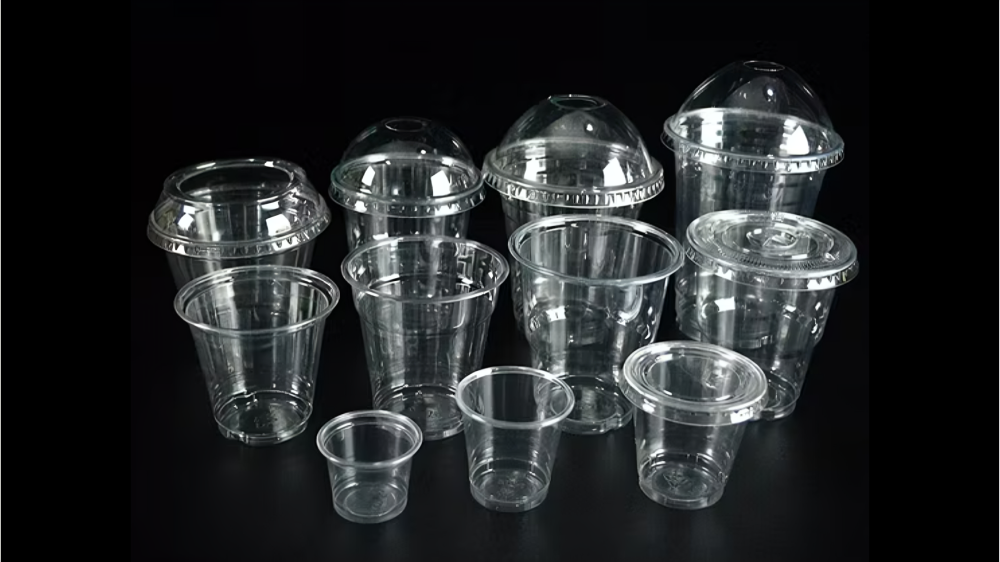One of the most common and adaptable throwaway objects in the world is the plastic cup. These portable, lightweight containers are useful for both home use and large gatherings. A plastic cup is a necessary item whether you are having a party, going on a picnic, or just need a quick drink solution.
Along with providing answers to some commonly asked questions, this article will examine the many applications, advantages, varieties, and environmental effects of plastic cups.
What is a Plastic Cup?
A plastic cup can be either a reusable or disposable drinking vessel composed of several plastic polymers, including polyethylene terephthalate (PET), polypropylene (PP), and polystyrene (PS). To meet diverse needs, these cups are available in a range of sizes, shapes, and colors.
ALSO READ: Top Solar Power Generators for Home & Travel
Types of Plastic Cups
- Disposable Plastic Cups – Used for single-serving beverages at parties, events, and fast-food chains.
- Reusable Plastic Cups – Made from durable plastic, often used for daily drinking purposes.
- Insulated Plastic Cups – Designed to keep beverages hot or cold for longer periods.
- Biodegradable Plastic Cups – Eco-friendly alternatives made from plant-based materials.
Top Uses of Plastic Cups
Plastic cups are very adaptable and have many uses outside of merely storing beverages.
Household Use
- Daily Drinking – Many people prefer using plastic cups for water, juice, or milk due to their lightweight nature.
- Kids’ Use – Parents often choose plastic cups for children as they are shatterproof and safe.
Parties and Events
- Birthday Parties – Disposable plastic cups make cleanup easy.
- Weddings & Corporate Events – Used for serving beverages to large crowds efficiently.
Travel and Outdoor Activities
- Picnics & Camping – Lightweight and unbreakable, perfect for outdoor use.
- Sports Events – Handy for hydration during games.
Medical and Laboratory Use
- Hospitals – Used for dispensing medicines or water to patients.
- Laboratories – Serve as disposable containers for samples.
Creative and DIY Projects
- Arts & Crafts – Used in school projects, paint holders, or planters.
- Storage Solutions – Great for organizing small items like buttons or beads.
Benefits of Using Plastic Cups
Why are plastic cups so popular? Here are some key advantages:
Cost-Effective
- Cheap to produce and purchase in bulk.
Lightweight and Portable
- Easy to carry around without the risk of breakage.
Hygienic and Disposable
- Reduces the spread of germs since they are often used once and discarded.
Variety of Options
- Available in different sizes, colors, and designs.
Temperature Resistance
- Some plastic cups can handle both hot and cold beverages.
Environmental Impact of Plastic Cups
While their convenient, plastic cups have an adverse effect on the environment.
The Problem with Plastic Waste
- Millions of disposable plastic cups end up in landfills and oceans yearly.
- Non-biodegradable plastics take hundreds of years to decompose.
Eco-Friendly Alternatives
- Biodegradable Cups – Made from cornstarch or sugarcane.
- Reusable Plastic Cups – Reduce waste over time.
- Recycling Programs – Encouraging proper disposal and recycling.
Conclusion
Plastic cups are a common sight in homes and at events all around the world because of their unparalleled cost, ease, and adaptability. Their impact on the environment, however, cannot be disregarded. We may take advantage of the advantages of a plastic cup while minimizing plastic waste by choosing reusable or biodegradable alternatives.
The plastic cup is still a sensible option for everyday use, gatherings, and travel—just be sure to dispose of it properly!
FAQs
Q: Are plastic cups safe for hot beverages?
A: Not all plastic cups can withstand high temperatures. Before using, always read the label.
Q: Can plastic cups be recycled?
A: Sure, but only for particular kinds (like PET). Verify local recycling rules at all times.
Q: How long do plastic cups take to decompose?
A: It can take up to 450 years for conventional plastic cups to decompose.
Q: What’s the best alternative to plastic cups?
A: Disposable or biodegradable cups (such as glass or stainless steel) are more environmentally friendly.
Q: Why are plastic cups so popular at events?
A: They do not require washing and are easy and reasonably priced.



